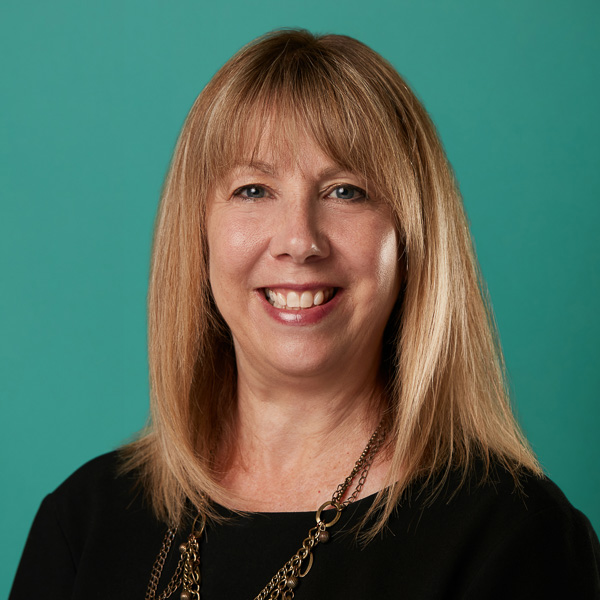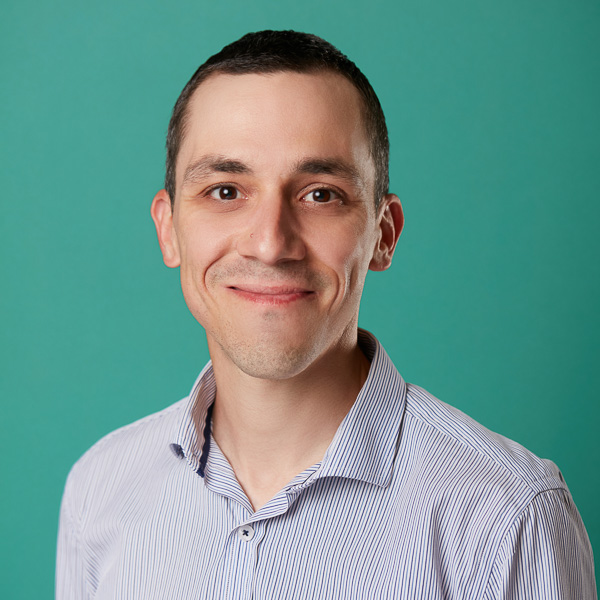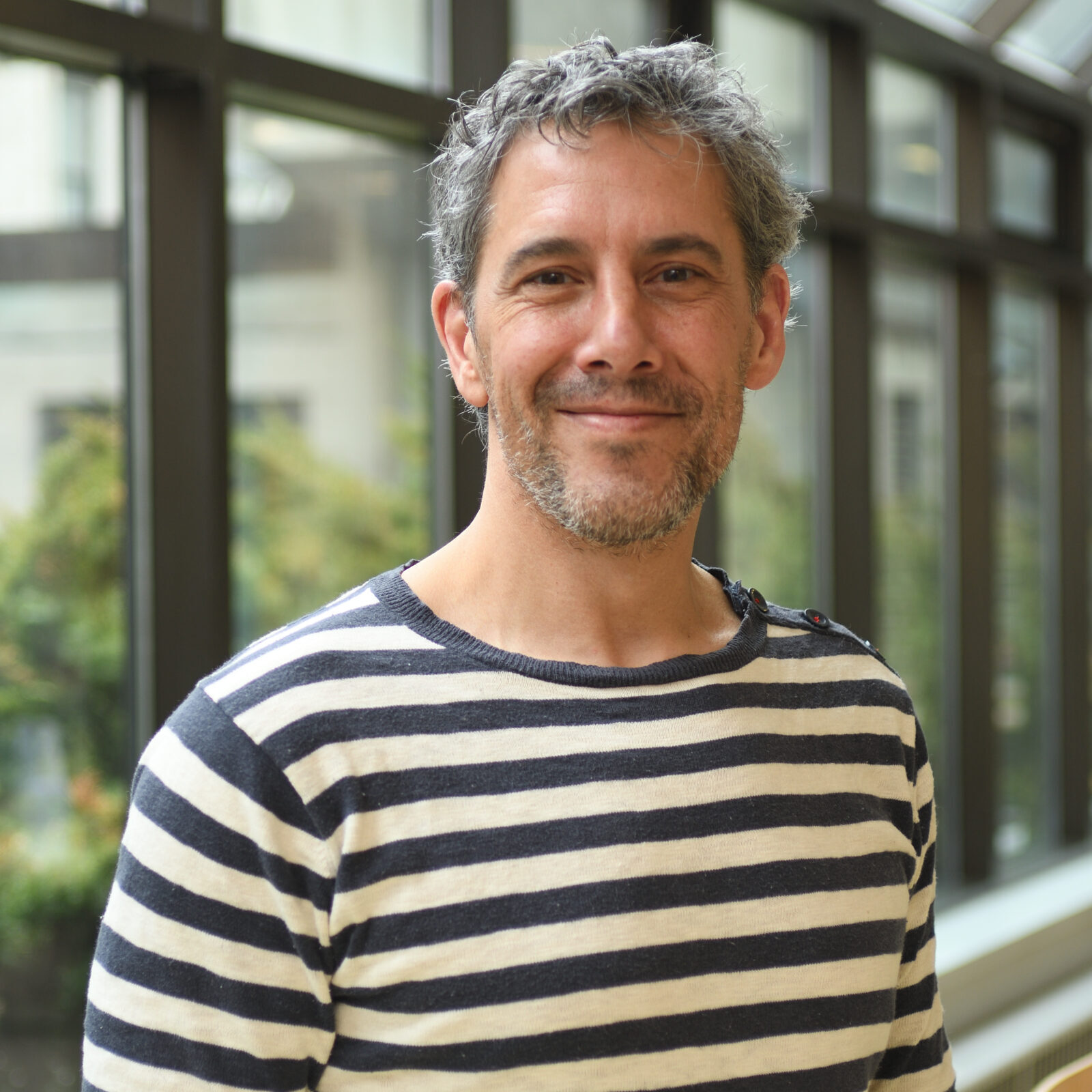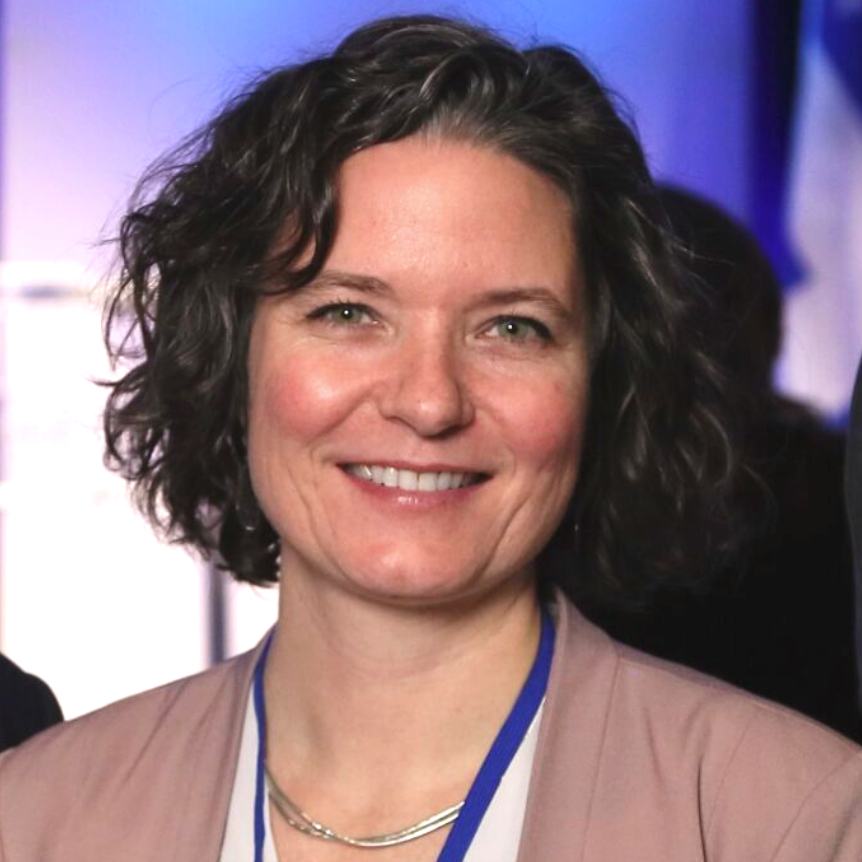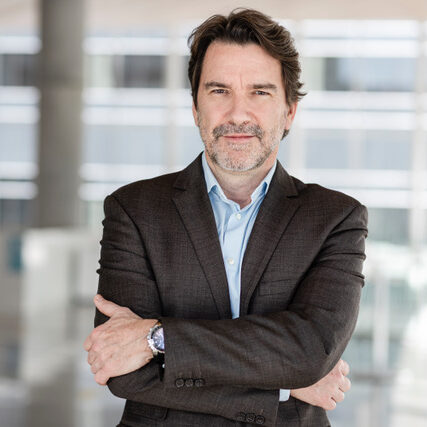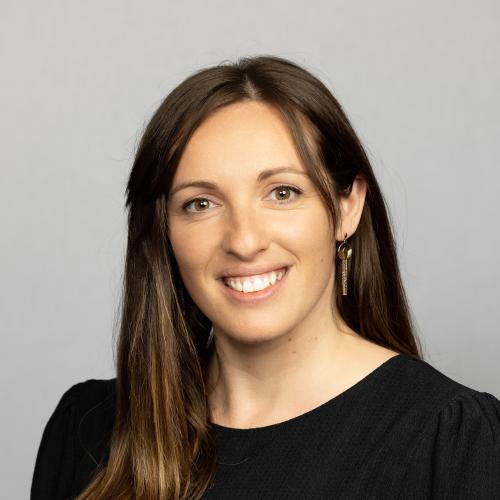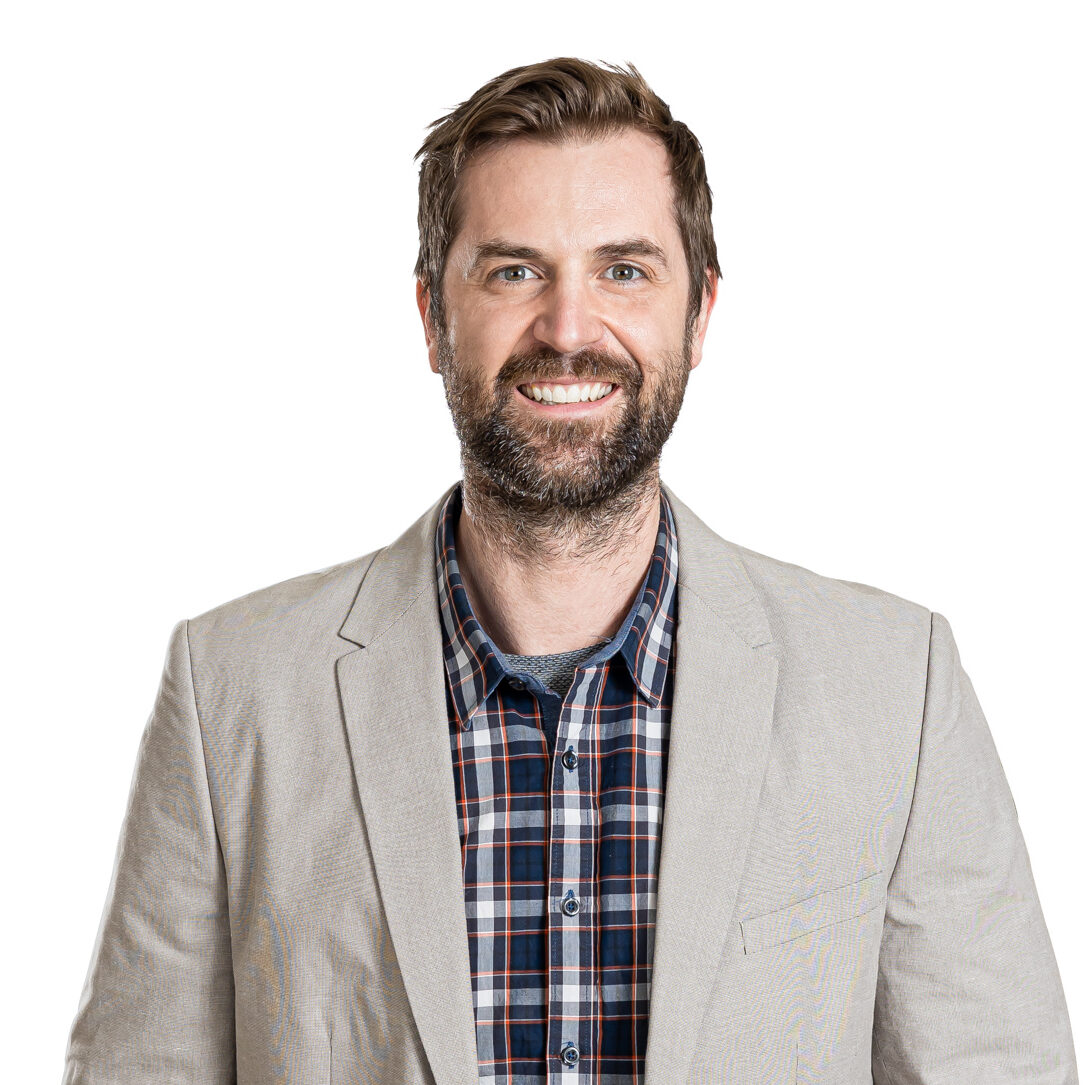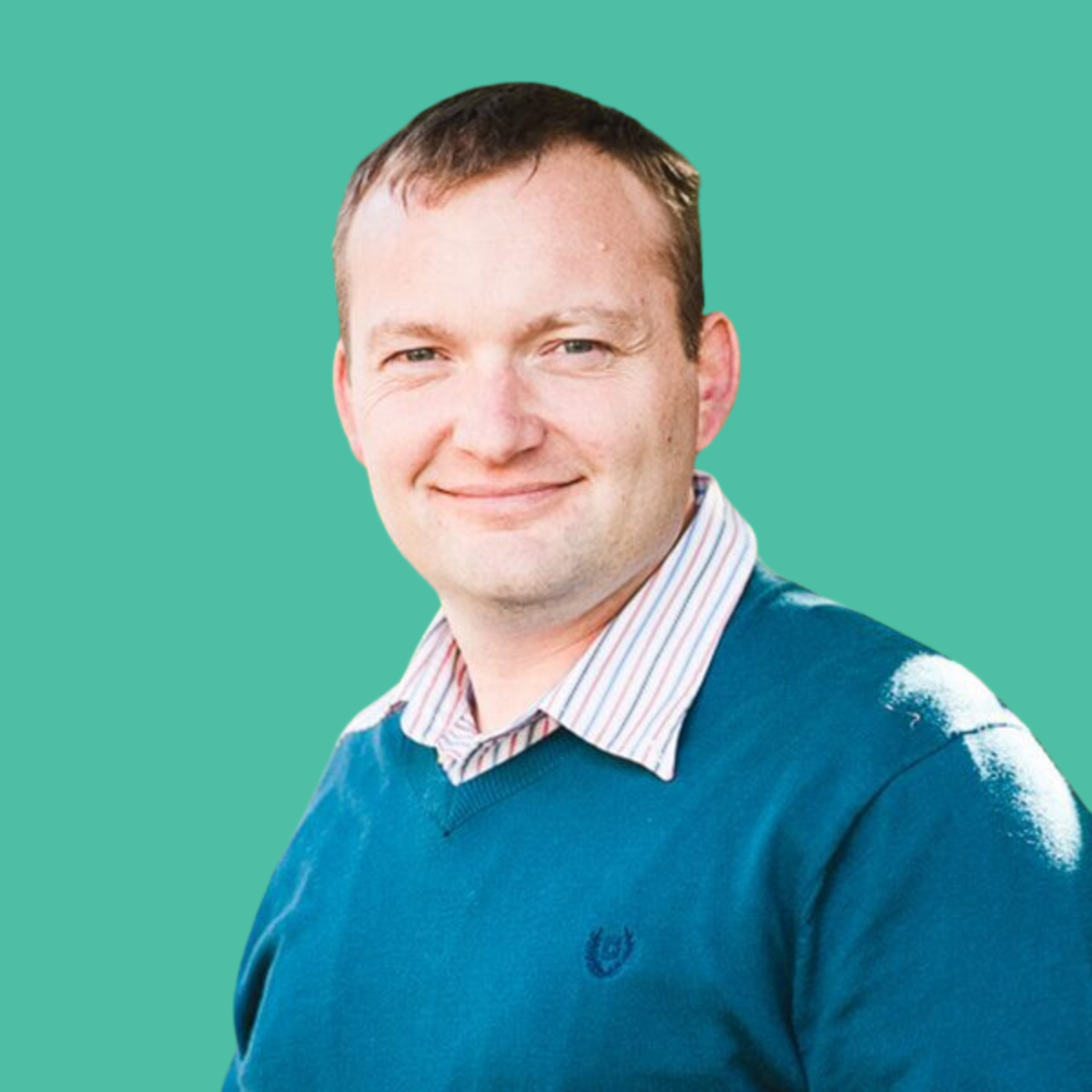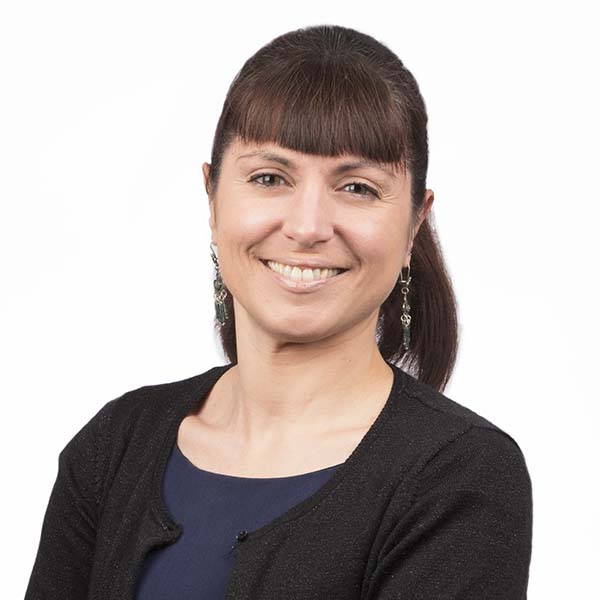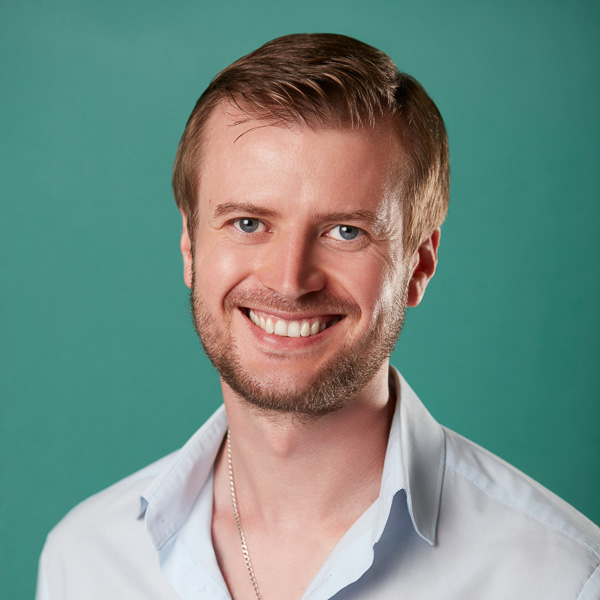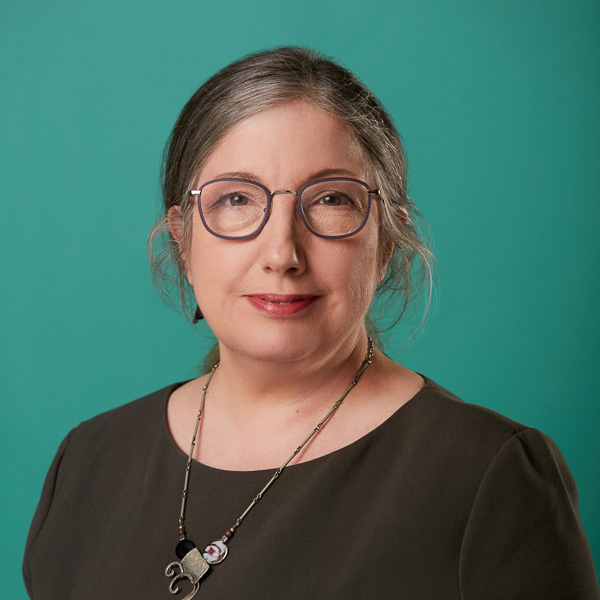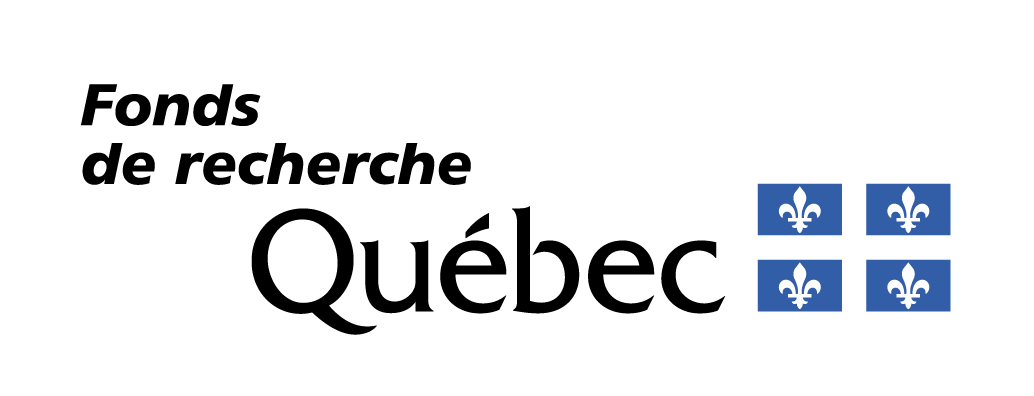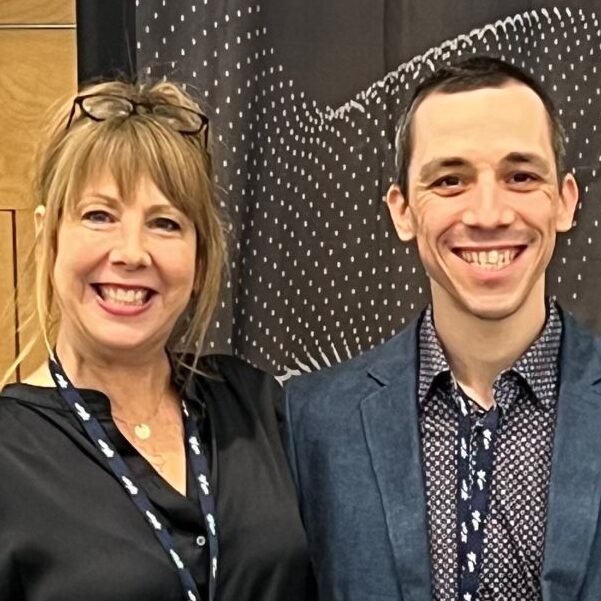Missions
![]()
The Pôle bioalimentaire represents a research and innovation lever that combines intersectorality and internationalization to bring out solutions aimed at accelerating the transition to sustainable and resilient food systems.
Financially supported by the Fonds de recherche du Québec – secteur Nature et technologies (FRQ), this cluster is unique, both in its design and in the innovative research, training and knowledge mobilization activities it offers. Bringing together the driving forces of various strategic groups in Quebec, the Pôle’s objective is to develop concrete responses to a range of issues facing today’s food systems, such as :
- Adapting to climate change,
- Preserving biodiversity,
- Limiting food loss and waste,
- Mitigating labor problems,
- Increasing food self-sufficiency.
The cluster’s activities will enable its scientific members – researchers, professionals and students alike – to team up with the user community of the biofood ecosystem, enabling innovative, concrete projects with strong socio-economic and environmental spin-offs. Artificial intelligence, the circular economy and the development of localized food systems are just a few examples of the tools that will be put to good use.
The Pôle will also be focusing on an international mission with up-and-coming students to take stock of current knowledge and document best practices in sustainable food on an international scale.
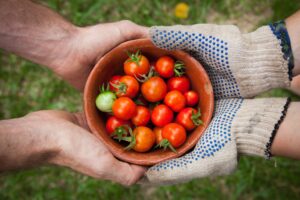
Board of Directors
![]()
Normandin
Daniel
Professor of Veterinary Epidemiology
CERIEC | Centre d’études et de recherches intersectorielles en économie circulaire
De Marcellis-Warin
Nathalie
Artificial intelligence specialist
CIRANO
Lesage
Michel
Director
Réseau des CCTT
De Marcellis-Warin
Nathalie
President and General Manager
CIRANO
Maccario
Sophie
Team manager - climate change adaptation science coordination
Ouranos
Bahn
Olivier
Director
Groupe d’Études et de Recherche en Analyse des Décisions (GERAD)
Martel
Jean-David
Director
Centre d’innovation sociale en agriculture (CISA) affiliated to Cégep de Victoriaville
Scientific committee
![]()
Project 4
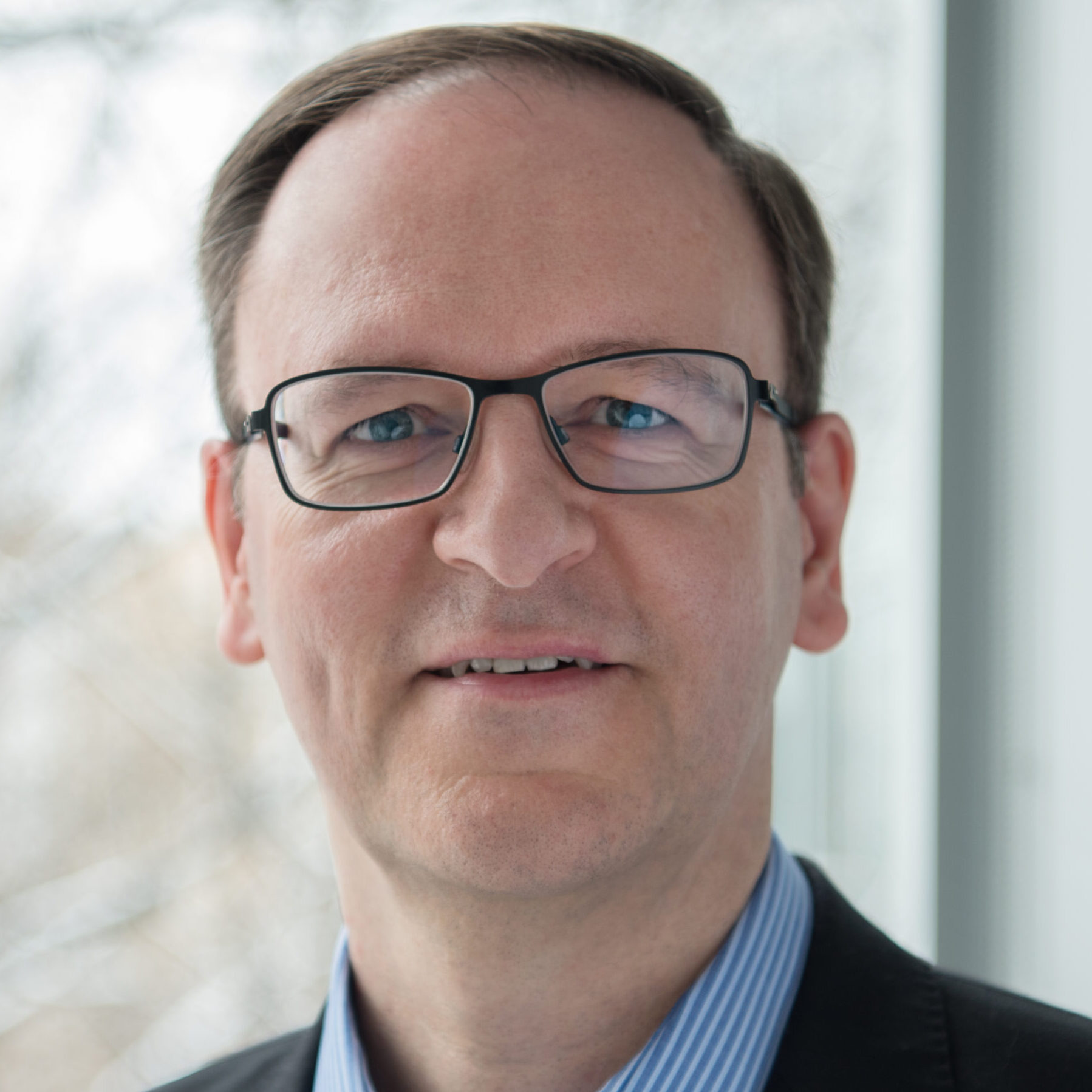
BAHN
Olivier
Director
Groupe d’Études et de Recherche en Analyse des Décisions (GERAD)
Project 6
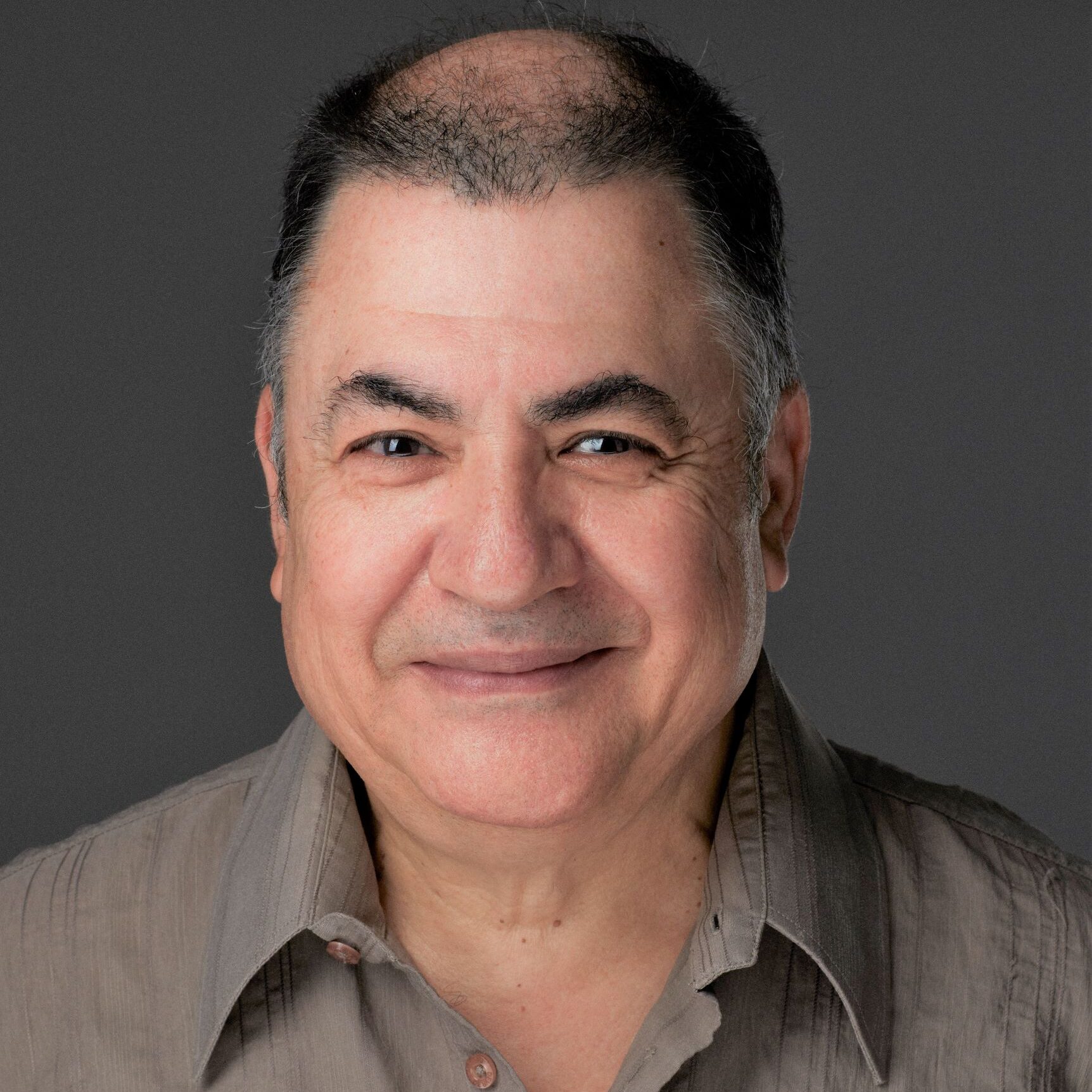
BOUKADOUM
Mounir
Director
ReSMiQ
Axes and projects
The Biofood Cluster supports strategic pilot projects involving multidisciplinary teams.
![]()
To provide a framework for the development of these interdisciplinary, cross-sector and cross-order teams, 3 axes have been identified, along with 7 cross-functional projects:
AXES :
- No1: Sustainable production systems
- No2: Sustainable transformation systems
- N03: Sustainable consumption
PRIORITY AREAS :
Priority 1. Quality and accessibility of food supply: nutritional quality, safety, contaminants, traceability, availability and accessibility of food while integrating aspects of cultural diversity (Indigenous populations), ethics and public health.
Priority 2. Food transition: emerging and alternative food matrices, consumption habits, culinary practices while integrating future food proteins.
Priority 3. Localized food systems: different governance structures, short supply chains, logistics and food transportation aspects, land use, right to food, social justice, proximity agriculture, food self-sufficiency and food autonomy.
Priority 4. Decarbonization and climate change adaptation: sector adaptation to climate change, carbon neutrality of the supply chain, eco-efficient technologies, carbon footprint of the supply chain, use of transformative technologies, input reduction and output valorization.
Priority 5. Circular economy and food waste reduction: reducing food losses and waste, valorization of co-products, packaging reduction and citizen education.
Priority 6. Supporting supply chain competitiveness: digital transformation, artificial intelligence, modeling, staff training and retention, development of intra and entrepreneurial capabilities and market access.
Priority 7. Inclusion, social acceptability and combating misinformation: knowledge mobilization and transfer, ethics, literacy, food myths, transgenesis, diets and food fraud.
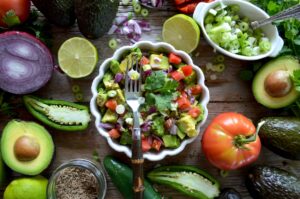
Affiliated members
Find the best people to make your projects a success
![]()
With the aim of developing teams made up of different specialties and locations, we will shortly be making available to you the different profiles of the researchers taking part in the Pôle bioalimentaire, including their fields of expertise.
In the meantime, we invite you to get in touch with our coordinator, Jennifer Larouche, who will be able to help you find the right profiles for your team, as well as plan future meetings.
Consult list
Call for projects
We invite you to take a look at the various projects available and to contact the reference person if you are interested.
![]()
Call for Projects: "New Teams – 2nd Edition": FINISHED


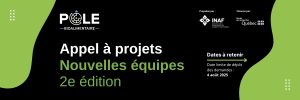
FINISHED:
Results to be announced shortly.
Fostering interdisciplinary collaboration for sustainable food systems
This call for projects aims to support research and action communities in accelerating the transition toward more sustainable, equitable, and resilient food systems. It encourages the creation of new interdisciplinary research teams, composed of researchers from various disciplines, in partnership with user communities.
In the context of ecological transition and growing complexity in the food sector, this program supports the development of innovative, concrete, and collaborative projects aligned with one or more of the seven priority areas of the Pôle Bioalimentaire:
- Quality and accessibility of the food supply
- Food transition
- Territorialized food systems
- Decarbonization and adaptation to climate change
- Circular economy and food waste reduction
- Support for supply chain competitiveness
- Inclusion, social acceptability, and misinformation in food systems
Download the application form here:
Form_proposition_project_NewTeams2 EN
Download here the guide : Appel à Projets new teams 2nd edition – EN
OBJECTIVES
- Launch new interdisciplinary research collaborations
- Generate evidence-based knowledge for food system stakeholders
- Test concrete solutions to address key challenges in Québec’s food sector
- Strengthen the synergy between academic research and field needs
ELIGIBILITY CRITERIA
- Project led by a researcher affiliated with a Québec postsecondary institution recognized by the FRQ
- The team must include at least two researchers from different departments and FRQ strategic clusters (in the Nature and Technologies and/or Society and Culture sectors)
- All team members must be members of the Pôle Bioalimentaire (support is available for registration if needed)
- A partnership with a user community is required
- A researcher can be officially part of only one application
- Researchers who have already received funding from a previous Pôle Bioalimentaire call may join a team but are not eligible to receive funding under this call
APPLICATION REQUIREMENTS
Applications must include:
- Project information (title EN/FR, summary EN/FR, description, timeline – max. 3 pages)
- Team composition, institutions, FRQ clusters, and scientific complementarity • Expected results and short- and medium-term outcomes (max. 1 page)
- Knowledge mobilization and dissemination plan (max. 1 page)
- Detailed budget and justification of funds (max. 1 page)
- CVs of all team members (submitted separately)
Submission deadline: August 4, 2025
Format: PDF, to be sent to pole@inaf.ulaval.ca with the subject line: “Submission – Call for Projects: New Teams, 2nd Edition”
PROJECT EVALUATION
Projects will be evaluated by a scientific committee, with an observer from the FRQ present.
Evaluation criteria:
- Project quality (25 pts): scientific rigor, clarity of objectives, sound methodology, realistic timeline
- Team quality (25 pts): complementary expertise, interdisciplinarity, resource sharing
- Impact on Québec’s biofood sector (30 pts): knowledge advancement, leverage potential, student training
- Knowledge mobilization (20 pts): dissemination strategy, involvement of user communities
📣 Results will be announced by September 2025, with project start dates no later than October 1, 2025.
FINANCIAL SUPPORT
- Funding amount: Up to $50,000 per project (excluding indirect research costs)
- Project duration: Until March 31, 2027 (no extension possible)
- Eligible expenses: Materials, salaries, student scholarships, professional fees, travel, dissemination, and knowledge transfer
Full list of eligible expenses: https://www.inaf.ulaval.ca/wp-content/uploads/2025/04/Liste_depenses_admissibles_POLV2-2.pdf
📬 For any questions or to request support in team-building or team matchmaking: pole@inaf.ulaval.ca
Call for Projects "Inclusion, social acceptability and the fight against misinformation in sustainable food": FINISHED



FINISHED:
Results to be announced shortly.
This call for projects aims to equip research and action communities to address issues related to inclusion, responsible communication, and misinformation in the field of sustainable food systems.
In a context of ecological transition and the growing diversity of information sources, this program supports projects that promote the emergence of more just, transparent, and resilient food systems.
Download the application form here:
Form_proposition_project_communication EN
Download here the guide : 2025-04-29 Appel à Projets Communication – EN
OBJECTIVES
- Better understand the issues of disinformation, misinformation, and malinformation in food-related communication;
- Promote inclusive practices in knowledge dissemination and mobilization;
- Highlight the diversity of food knowledge (including Indigenous, immigrant, and gendered perspectives);
- Strengthen food, digital, and media literacy among the public;
- Support responsible communication in the biofood sector.
ELIGIBILITY CRITERIA
- Projects must be led by a researcher affiliated with a Québec postsecondary institution recognized by the FRQ;
- The team must include at least two researchers from different departments and different FRQ strategic clusters(Nature and Technology and/or Social Sciences and Culture);
- All team members must be members of the Biofood Hub (support is available to facilitate membership);
- Participation of user communities (companies, NPOs, associations, municipalities,etc) is required ;
- Projects must demonstrate their relevance to the advancement of Québec’s biofood sector.
APPLICATION PROCESS
Applications must include the following elements:
- Project details (max. 3 pages)
- Team members
- Expected results and projected outcomes (max. 1 page)
- Knowledge dissemination and mobilization plan (max. 1 page)
- Detailed budget and justification of funds (max. 1 page)
- CVs of team members
Submission deadline: June 9, 2025
Format: PDF, to be sent to pole@inaf.ulaval.ca with the subject line “Submission for Communication Call for Projects”
EVALUATION PROCESS
Applications will be reviewed by a scientific evaluation committee, composed of domain experts, in collaboration with the call for projects’ partner organizations.
Evaluation Criteria (Minimum required score: 80%)
- Project quality and scientific rigour (25 points): Relevance of objectives, robustness of methodology, and project feasibility.
- Team quality (25 points): Complementarity of expertise, intersectoral and interdisciplinary collaborations.
- Expected impact on the agri-food sector (30 points): Knowledge advancement, innovation, potential economic and societal benefits.
- Knowledge dissemination and mobilization plan (20 points): Strategy for transferring results, engagement of user communities.
📢 Results will be announced in June 2025.
FINANCIAL SUPPORT DETAILS
- Funding amount: $25,000 per project (excluding indirect research costs).
- Project duration: Up to 18 months.
- Eligible expenses: Equipment, materials, salaries and scholarships (students, research professionals), travel expenses, dissemination, and knowledge transfer costs (see the full list of eligible expenses).
For any questions or support requests, contact us at pole@inaf.ulaval.ca.
Help build a more inclusive, fair, and well-understood food system for all.
Call for Projects "Climate change adaptation and food safety in food processing": FINISHED


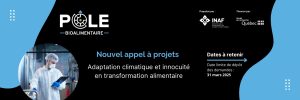
FINISHED:
Results to be announced shortly.
This call for projects, led by the Pôle bioalimentaire, powered by the Institute of Nutrition and Functional Foods (INAF), and supported by the Fonds de recherche du Québec— secteur Nature et technologies (FRQ), aims to promote the responsible and sustainable integration of artificial intelligence (AI) in the food processing sector.
The objective of this call is to stimulate the development and integration of responsible and sustainable solutions to help the food processing sector adapt to climate challenges while ensuring food safety and security.
Download the application form here:
Form_proposition_project_Innocuity EN
Download here the guide :2025-02-11 Call for projects innocuity
OBJECTIVES
- Study the implementation of processes that mitigate the impacts of climate change on the safety and quality of processed foods.
- Promote the development of new approaches for contaminant control, efficient resource management, and optimization of processing methods.
- Foster increased cooperation among stakeholders to accelerate the transition towards a sustainable, safe, and equitable agri-food sector.
ELIGIBILITY CRITERIA
- The project must be led by a researcher affiliated with aQuebec-based postsecondary institution recognized by the FRQ and must be a member of a strategic cluster (RS) from either FRQ— secteur Society and Culture.
- The team must include at leasttwo researchers affiliated with two different institutions.
- All researchers involved must be members of the Pôle bioalimentaire(support is available for membership).
- External collaborators and industry stakeholdersare encouraged to participate.
- Projects must align with the themes ofclimate change adaptation and food safety in food processing and demonstrate their relevance to the agri-food sector.
APPLICATION PROCESS
Applications must include the following elements:
- Project details (max. 3 pages)
- Team members
- Expected results and projected outcomes (max. 1 page)
- Knowledge dissemination and mobilization plan (max. 1 page)
- Detailed budget and justification of funds (max. 1 page)
- CVs of team members
📅 Submission deadline: March 31, 2025
📄 Format: PDF, to be sent to pole@inaf.ulaval.ca with the subject line “Submission for AI call for projects”
EVALUATION PROCESS
Applications will be reviewed by a scientific evaluation committee, composed of domain experts, in collaboration with the call for projects’ partner organizations.
Evaluation Criteria (Minimum required score: 80%)
Applications will be evaluated by a scientific review committee composed of experts in the field, in collaboration with partner organizations of the call for projects.
- Project quality and scientific rigor (25 pts): Relevance of objectives, methodological robustness, and project feasibility.
- Team quality (25 pts): Complementary expertise, interdisciplinary and intersectoral collaborations.
- Expected impact on the agri-food sector (30 pts): Advancement of knowledge, innovation, potential economic and societal benefits.
- Knowledge dissemination and mobilization plan (20 pts): Strategy for knowledge transfer, involvement of stakeholders.
📢 Results will be announced in May 2025, with project start dates no later than June 1, 2025.
FINANCIAL SUPPORT DETAILS
- Funding amount: $50,000 per project (excluding indirect research costs).
- Project duration: Up to 18 months (extension to 24 months possible with MITACS co-funding).
- Eligible expenses: Equipment, materials, salaries and scholarships (students, research professionals), travel expenses, dissemination, and knowledge transfer costs.
For any questions or support requests, contact us at pole@inaf.ulaval.ca.
Call for Projects "Artificial Intelligence in the Agri-Food Sector": FINISHED


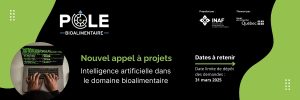
FINISHED:
Results to be announced shortly.
This call for projects, launched by the Pôle Bioalimentaire, powered by the Institute of Nutrition and Functional Foods (INAF) and supported by the Fonds de recherche du Québec — secteur Nature et technologies (FRQ), aims to foster the responsible and sustainable integration of artificial intelligence (AI) in the food processing sector.
Its objective is to stimulate intersectoral collaboration between researchers, industry partners, and digital technology stakeholders to enhance the competitiveness of the agri-food sector and support the transition toward a more sustainable and equitable model.
This initiative is made possible through the collaboration of several dissemination partners, including IVADO (Institute for Data Valorization), OBVIA (International Observatory on the Societal Impacts of AI and Digital Technology), IID (Institute Intelligence and Data), and ReSMiQ (Québec Strategic Group in Microsystems).
Download the application form here:
Form_proposition_project_IA EN
Download here the guide : 2025-02-26 Appel à Projets IA – EN
OBJECTIVES
- Support innovation through the development and application of AI-driven solutions to enhance the competitiveness of Québec’s agri-food sector.
- Encourage responsible data management, ensuring effective governance and better valorization of digital resources.
- Promote new collaborations between researchers and partners from different scientific and technological fields.
- Develop pilot projects with the potential to evolve into large-scale initiatives that address real industry needs.
ELIGIBILITY CRITERIA
- The project must be led by a researcher affiliated with a post-secondary institution recognized by FRQ and be a member of a strategic cluster of FRQ – secteur Nature et technologies or FRQ — Society and Culture.
- The team must include at least two researchers from two different institutions.
- All participating researchers must be members of the Pôle Bioalimentaire (support is available for membership).
- External collaborators and industry stakeholders are encouraged to participate.
- Projects must align with the AI theme in food processing and demonstrate their relevance to the agri-food sector.
APPLICATION PROCESS
Applications must include the following elements:
- Project details (max. 3 pages)
- Team members
- Expected results and projected outcomes (max. 1 page)
- Knowledge dissemination and mobilization plan (max. 1 page)
- Detailed budget and justification of funds (max. 1 page)
- CVs of team members
📅 Submission deadline: March 31, 2025
📄 Format: PDF, to be sent to pole@inaf.ulaval.ca with the subject line “Submission for AI Call for Projects”
EVALUATION PROCESS
Applications will be reviewed by a scientific evaluation committee, composed of domain experts, in collaboration with the call for projects’ partner organizations.
Evaluation Criteria (Minimum required score: 80%)
- Project quality and scientific rigour (25 points): Relevance of objectives, robustness of methodology, and project feasibility.
- Team quality (25 points): Complementarity of expertise, intersectoral and interdisciplinary collaborations.
- Expected impact on the agri-food sector (30 points): Knowledge advancement, innovation, potential economic and societal benefits.
- Knowledge dissemination and mobilization plan (20 points): Strategy for transferring results, engagement of user communities.
📢 Results will be announced in May 2025, with project start dates no later than June 1, 2025.
FINANCIAL SUPPORT DETAILS
- Funding amount: $30,000 per project (excluding indirect research costs).
- Project duration: Up to 18 months (extension to 24 months possible with MITACS co-funding).
- Eligible expenses: Equipment, materials, salaries and scholarships (students, research professionals), travel expenses, dissemination, and knowledge transfer costs.
For any questions or support requests, contact us at pole@inaf.ulaval.ca.
💡 Join us in shaping the future of the agri-food sector through artificial intelligence!
Call for projects: “Developing and sustaining the Quebec biofood workforce": FINISHED



FINISHED: Discover the selected teams:
Team 1: A Care-Based Approach: A Response to Retention Challenges in the Agri-Food Processing Sector – Laurence Guillaumie, Olivier Boiral & Alexander Yuriev
This project explores the integration of a care-based approach in human resources management within Quebec’s agri-food processing sector. By supporting employee well-being and addressing employer needs, this approach aims to strengthen the sector’s attractiveness and workforce retention. The project will document concrete implementation methods, identify stakeholder needs, and co-develop practical tools such as training and a guide, paving the way for grants and broader deployment.
Team 2: Co-constructing a Tool to Improve Working Conditions – Marie-Eve Major, Nektaria Nicolakakis, Isabelle Feillou & Justine Arnoud
Food processing companies face major challenges related to attracting and retaining workers, challenges that could partly be addressed by improving working conditions and preventing health risks, particularly musculoskeletal disorders. This project aims to co-construct with these companies a tool supporting the development and implementation of organizational practices and interventions to improve working conditions and prevent musculoskeletal disorders, as well as to document user feedback on the tool.
Team 3: Addressing Employment and Workforce Management Challenges in Quebec’s Biofood Industry – Patrice Jalette, Dalia Gesualdi-Fecteau & Blandine Emilien
With a focus on two sub-sectors of the food processing industry, this research project seeks to thoroughly examine the challenges employers face regarding labour attraction and retention. It also aims to better understand how emerging practices, such as recruiting temporary migrant workers, have developed over time to address these challenges, and to propose improvements for these strategies.
Team 4: A Model for Managing Occupational Health and Safety in Very Small Businesses – Jessica Dubé, Caroline Jolly, Mélanie Lefrançois, Nancy Beauregard & Bénédicte Calvet
Very small businesses (VSBs) play an important role in Quebec’s economy and face several challenges related to OHS management and workforce sustainability. The main objective of this project is to study how OHS is handled within VSBs in the agri-food sector, with particular attention to succession and workforce continuity. A qualitative design will be used, including data collection through multiple case studies. The resulting action pathways will aim to improve interventions targeting VSBs in the agri-food sector, as well as in other sectors.
Team 5: Optimizing the Attractiveness of Quebec’s Food Processing Sector: Retention at the Core of the Strategy – Marie-Ève Dufour, Gaëlle Cachat-Rosset, Julie Dextras-Gauthier, Marie-Hélène Gilbert & Felix Ballesteros Leiva
Within the biofood industry, the food processing sector is proactive in seeking solutions to labour challenges. Combining scientific knowledge with qualitative methods, this research project aims to better understand the factors influencing retention in this sector, including EDI considerations, in order to better inform organizations about strategic levers they can use. This perspective encourages more profitable investments for organizations, not only in terms of retention but also attraction.
Team 6: Strengthening Sustainability and Attractiveness in the Agri-Food Processing Sector – Pierre Paul Audate, Laurence Guillaumie, Thierno Diallo, Yan Kestens, Coralie Gaudreau, Claudia Pelletier & Patrick Matos
This project explores the challenges related to workforce attractiveness and sustainability in the Mauricie food processing sector, with the goal of identifying barriers and potential solutions. A mixed-methods approach will be used, combining semi-structured interviews and participatory workshops. The results will include the creation of an online platform listing challenges faced by Mauricie biofood companies and providing solutions adapted to local realities. Partnerships with regional and provincial networks will support the dissemination and replication of innovative solutions identified through the project.
Team 7: How (and Where) to Use Collaborative Robots to Support Workforce Renewal and Sustainability – François Bernard Malo, Philippe Cardou, Linda Saucier & Clément Gosselin
This research project aims to help stakeholders in Quebec’s biofood industry, particularly those in pork processing, better understand how they might benefit from collaborative robots to improve productivity and enhance employees’ quality of work life. Developed in partnership with stakeholders from one of the sector’s largest companies, this project seeks to advance and transfer knowledge in human resources management, mechanical engineering, and agri-food processing.
Team 8: Aligning and Developing the Skills of New Generations to Meet Quebec’s Food Processing Needs – Guylaine Sauvé, Colombe St-Pierre, Mélanie Girard, Philippe Ste-Marie, Martine Pelletier & Patrick Leduc
This project involves developing secondary-level teaching materials on food processing, integrating scientific concepts and multidisciplinary and transversal skills. Based on young people’s perceptions, the study aims to spark their interest in the sector and encourage them to explore related career paths.
Find out more about the initial call for projects
Objectives
The aim of the call for projects “Relève et pérennisation de la main-d’œuvre du secteur bioalimentaire québécois” is to use innovative approaches to help meet the challenges of attractiveness and retention. It is part of a structuring partnership and funding initiative by the Ministère de l’Agriculture, des Pêcheries et de l’Alimentation du Québec (MAPAQ), based on the Ça Relève! initiative of Université Laval’s Institut sur la nutrition et les aliments fonctionnels (INAF). The Pôle bioalimentaire, funded by the Fonds de recherche du Québec (FRQ) Nature and technologies sector, is supporting this call for projects by increasing the total budget and mobilizing all Quebec researchers who are members of the FRQ Nature and Technologies sector and Society and Culture sector strategic clusters.
More specifically, this call for projects aims to :
- Clarify and analyze the challenges facing the Quebec bio-food sector in terms of human resources, to provide the various stakeholders (food processing companies and educational institutions) with objective analyses and concrete solutions;
- Help companies to implement appropriate practices for sustainable management of their human resources and support for their development;
- Align in real time the skills development of new generations with the needs of food processing;
- Attract scientists from outside the bio-food sector to the issue, particularly in the fields of human resources management and, more broadly, the social sciences.
Application deadline: Monday, December 16, 2024
Call for projects documents
Eligibility criteria and terms and conditions
- Researcher affiliated with a Quebec post-secondary institution recognized by the FRQ and a member of an FRQ Nature and Technology or Society and Culture group at the time the project is carried out. If the applicant is not a member of a group at the time of application, he or she will be assisted in the membership process to confirm eligibility;
- Be a member of the Pôle bioalimentaire. If membership in the Pôle bioalimentaire is not yet effective when the application is submitted, support will be provided to facilitate registration and ensure eligibility;
- Maximum duration: two (2) years. Projects must be completed by March 31, 2027;
- Completion of applied projects in partnership with the community (an asset);
- Eligible projects from $30,000 to $100,000.
Submitting applications
Applications must include all of the following information:
- Project information
- A short summary of the project
- A description of the project
- Expected results and prospects
- Dissemination and knowledge mobilization plan
- Detailed budget and justification of funding
- Abbreviated CV
Evaluation of applications
Eligible applications will be forwarded to a scientific evaluation committee composed of researchers with expertise aligned with the nature of the projects submitted, and who have no conflict of interest with the applicants. The recommendations of the scientific evaluation committee will be submitted to a committee made up of three members of the Pôle bioalimentaire steering committees and three members of the partner committee Ça Relève! – Main d’œuvre partner committee for funding decisions.
Call for projects: "Circular Economy – Food Systems Lab": FINISHED



FINISHED: Discover the selected teams:
Team 1: Development of a Reserved Designation “Circular Food” – Marie-Claude Desjardins, Jérôme Perron & Jonathan Rodrigue
The project aims to develop a reserved designation, Circular Food, to recognize and promote circular economy practices in Quebec’s food sector. Reserved designations are governed by the framework established under the Act Respecting Reserved Designations and Added-Value Claims. The project focuses on developing the initial phase of the designation application, which precedes the official submission to the Conseil des appellations réservées et des termes valorisants (CARTV). It will identify the elements that will form the basis of the product specifications, control plan and opportunity study, required components for any reserved designation application. The development of a Circular Food reserved designation will help promote sustainable food practices and strengthen Quebec’s position as a leader in the circular economy.
Team 2: Reduction and Circularization of Plastic Film in Tertiary Packaging – Valérie Jodoin & Saïd Elkoun
Tertiary packaging, particularly stretch film, is a major source of plastic waste, including in food logistics systems. Large quantities are used for handling and transporting pallets of food products. This material is targeted under the modernization of selective collection, and its production must be accompanied by an environmental declaration starting in 2025. This represents a key moment to shift industry practices. The project therefore aims, on one hand, to evaluate the environmental and economic impact of eco-designed films (from production to end-of-life circularization) and, on the other, to identify and test reduction strategies to move toward source reduction of these impacts.
Team 3: Overview and Assessment of Resource-Sharing Platforms and Unsold Food Management in Quebec’s Food Systems – Mathilde Vincent, Élisabeth Viry, Melody Tim Yen & Vincent Lusignan
This project aims to analyze and optimize the use of digital resource-sharing platforms in Quebec’s biofood sector by developing a decision-making guide to help organizations choose the platform best suited to their situation and needs. The research question focuses on determining how digital platforms can support the biofood sector in resource-sharing initiatives. This project is essential in a context where numerous digital platforms are being developed in silo across the province, creating a growing need to align and harmonize these efforts.
Team 4: Technical Tools for the Sharing of Food Processing Equipment and Infrastructure – Catherine Cyr, Christine Vigneault-Gingras, Julie Courchesne & Myriam Poirier
The goal is to develop technical tools enabling community organizations and enterprises (private or social economy) to safely and formally share food processing equipment and infrastructure, establishing business relationships beneficial to both parties. First, contract templates will be developed by legal experts to ensure legal compliance and protection in cases of equipment damage, disputes, or failure to meet hygiene and sanitation standards. Next, an evaluation tool for determining cost recovery will be developed by economic development advisors to help parties set fair pricing for the shared use of food processing equipment or infrastructure.
Team 5: Building the Future of Circular Economy in Food Systems: A College-Level Course Model Applied to the Fisheries Sector – Éric Tamigneaux, Ronaldo Tavares de Souza, Félix Fortin Mongeau, Pierre-Olivier Fontaine & Éloïse St-Pierre
The core principles of the circular economy can be applied and taught across various fields. To support understanding and encourage application, it is essential to introduce students to these concepts early through engaging contexts. This project explores and defines the fundamentals of circular food systems to create a coherent, innovative, and versatile learning process. It will take shape as an online complementary CEGEP course. As a pilot, the course will focus on the fisheries sector and will initially be delivered by specialized instructors from Quebec’s National School of Fisheries and Aquaculture. The course structure and materials will later be made open-access to inspire other specialized programs to adapt and localize them according to their needs.
Team 6: Circular Economy in Quebec’s Fisheries and Aquaculture Sectors: Current Status and Opportunities – Esteban Figueroa, Mylène Arbour, Estelle Pedneault & Eloïse Lemaire
This project explores the development of the circular economy (CE) in Quebec’s fisheries and aquaculture sectors. The first step is a literature review to identify existing CE practices in the sector. Afterwards, a tailored conceptual framework will be developed to account for the specificities of this field. Interviews with key stakeholders will assess their understanding of CE, identify existing initiatives, and evaluate the potential for new circular practices. This phase also includes an analysis of barriers and enablers. The collected data will be used to propose an enhanced conceptual framework adapted to sector needs. Finally, technical briefs will be written to disseminate the results to the scientific community and industry professionals, supporting the adoption of CE practices.
Team 7: Deploying and Sustaining Solidarity Food Production within Regional Circular Economy Strategies: A Case Study of the Saguenay–Lac-Saint-Jean Region – Pierre-Paul Audate, Juste Rajaonson & Sophie Lapointe
This project aims to deepen understanding of the governance of solidarity food production (SFP). SFP is a production model that strengthens food security by allocating part of the harvest to nonprofit organizations and engaging socioeconomically disadvantaged individuals in productive activities. Within the context of Quebec’s regional circular economy strategies, this project seeks to support the deployment and long-term sustainability of these initiatives. SFPs face two major challenges: (1) dependence on startup-phase subsidies and (2) difficulty competing with traditional production models. Using the Saguenay–Lac-Saint-Jean region as a case study, the project aims to better understand the diversity of SFPs and their governance models to identify needs, innovations, and improvements that could enhance their autonomy and sustainability. The analytical approach is inductive, combining document analysis with participatory engagement involving local stakeholders.
Team 8: Democratizing More Direct Purchasing Models from Local Producers – Catherine Vachon, Amélie Parenteau, Hugo Melgar-Quiñonez & Renata Pozelli Sabio
Achieving the Sustainable Development Goals (SDGs), particularly SDG 2, Zero Hunger, requires a profound transformation of the current food system. Short food supply chains must be part of this transition, as they are better able to integrate economic, environmental, and social responsibility dimensions. Democratizing these more direct marketing models is crucial to sustaining the transitions toward more sustainable, circular, and responsible food systems. However, responsibility cannot fall solely on consumers’ choices.
The project, Democratizing More Direct Purchasing Models from Local Producers, aims to better understand the mechanisms that can support the democratization and long-term viability of short food supply chains in Quebec. To do so, we will identify, analyze, and compare different direct-to-producer purchasing models, highlighting issues of competition, cannibalization, and identifying possibilities for complementarity and synergy during the experimentation phase.
Find out more about the initial call for projects
This call for projects is the result of a collaboration between the Food Systems Lab (LSA) and the Biofood Hub. Launched in May 2023, the LSA is an initiative of CERIEC and La Transformerie that aims to increase the sustainability of Quebec’s food systems by focusing on circular economy strategies. Through co-creation workshops, the LSA identified barriers to food circularity and proposed potential structuring project avenues.
The Biofood Hub supports the objectives of this acceleration lab by encouraging the participation of intersectoral researchers in working groups formed in collaboration with stakeholders from the field.
Call for projects: "Climate adaptation and food quality": FINISHED


Call for projects: "New Teams": FINISHED


Download Liste_depenses_admissibles_POLV2 2 for FRQ-funded calls for projects.
Call for collaborations
![]()
Invitation to join a Circular Economy Working Group
Project presentation
The Pôle bioalimentaire is pleased to collaborate with the Lab Systèmes Alimentaires accelerator laboratory, initiated and coordinated by CERIEC and the Transformerie.
Since its three-year launch in May 2023, the Lab Systèmes Alimentaires mission is to strengthen the sustainability of Quebec food systems through circular economy strategies. The Lab focuses on the co-creation of solutions, their field testing, and the transfer of practices and knowledge. Through applied research, interdisciplinary partnerships and innovative pilot projects, the Lab is committed to reducing food waste and improving supply chain resilience.
Call for applications
We have recently carried out co-creation workshops to identify obstacles to food circularity, as well as solutions and avenues for structuring projects. The project is now ready to form its first working groups to develop research project proposals. We invite researchers to join these groups to develop projects in collaboration with local players.
Benefits for researchers
- Financial contribution of $25,000 to support research activities.
Funding made possible by the Pôle Bioalimentaire, financed by the Fonds de recherche Québec and supported by INAF.
- Additional funds may be available through CERIEC and La Transformerie.
Important dates
- Registration deadline: August 25, 2024
- Co-creation meetings by project track: September 2024
Project tracks
- Quebec Circular Food” certification
- Circular packaging
- Territorial circularity data libraries
- Resource and equipment sharing space
- Evaluation of circular biofood initiatives to raise awareness
- Education program on circular food systems
- Communication and awareness-raising tools for agriculture and fisheries
- Fiscal leverage financing tools to promote circularity
- Territorial governance for circular food systems
- Circularity indicators
- Studies of the relationships and influences between production and consumption
Conditions of Eligibility for $25,000 Financing
- Be a member of one of the FRQ’s strategic clusters Nature and Technology or Society and Culture
- Be a member of the Pôle Bioalimentaire (membership possible after selection of your application)
- Participate in the development (co-creation) of the project in collaboration with team members identified by the Food Systems Lab.
Researchers not eligible for Pôle funding may still be eligible for other funding available through Lab Systèmes Alimentaires.
Don’t miss this opportunity to contribute to significant advances in the bio-food industry!
Join a team: Register here
If you have any questions, please contact us here.
The Food Systems Lab is a project initiated and coordinated by :
Mission of the Bio-food Hub
![]()
International missions
The Bio-food Hub, powered by INAF and supported by the Fonds de recherche du Québec (FRQ), offers you a unique chance to participate in an international mission to one of the world’s food innovation hotspots. These missions will allow us to meet change-makers, discover exemplary sustainable food initiatives, and share our learnings at the 2026 Bio-food conference.
Destinations and themes
1. Netherlands and Belgium (October 19-30, 2025)
- Circular economy and food waste reduction
- Inclusion, social acceptability, and fighting misinformation
2. Denmark and Sweden (September 23 – October 1, 2025)
- Decarbonization and adaptation to climate change
- Territorial food systems
- Quality and accessibility of food supply (food policies, addressing inequities)
3. Brazil (October 20-31, 2025)
- Quality and accessibility of food supply
- Inclusion, social acceptability, and fighting misinformation
4. California (September 2-10, 2025)
- Food transition
- Supporting supply chain competitiveness (including artificial intelligence)
Note: Dates may be modified depending on the evolution of the situation between Canada and the United States.
Nethlands and Belgium


Brazil


California


Denmark and Sweden



